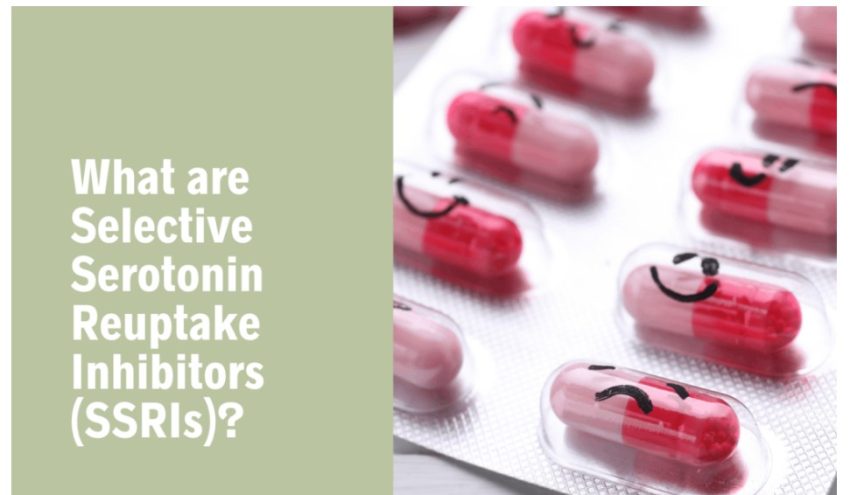By Leanna Coy, FPN-BC
On July 21, 2025, the U.S. Food and Drug Administration (FDA) convened a panel to discuss the safety of using a class of antidepressants in pregnancy. The drugs, called selective serotonergic reuptake inhibitors (SSRIs), were the focus. From the start, the panel took the stance of questioning the use of these medications and leaned into the potential risks to the fetus. Following the meeting, the medical community loudly raised concerns about the panel ignoring well-documented evidence and appearing biased against the use of SSRIs.
The FDA panel consisted of 10 medical professionals and researchers. The panel acknowledged this topic as controversial. Discussion was encouraged to “challenge the current dogma” on the treatment of depression in pregnancy. The panel leaned suggested looking for alternative treatment options. It went so far as to recommend a black box warning on SSRI medications.
A black box warning is the highest level of a safety warning that a medication can receive from the FDA. These warnings typically cover an entire class of drugs and not just one drug. Drugs carrying these warnings are still often prescribed by healthcare providers. Fluoroquinolone antibiotics (ciprofloxacin, levofloxacin, etc.) fall in this category.
The intent of the black box warning is to raise concern for both the prescriber and patient when deciding to use the medication. Black box warnings are not permanent. The FDA has removed black box warnings from some medicines, including varenicline (Chantix). Varenicline previously had a warning for increased depression and suicidal thoughts.
Medical Community Response
Medical professionals not only understand the risks of SSRI use in pregnancy, but also the risks of not treating depression. The response from leading medical organizations was quick and fierce. The American College of Obstetricians and Gynecologists (ACOG) released a statement on the benefits of SSRI access in pregnancy.
“For pregnant people who need SSRIs, they are life-changing and lifesaving. Mental health conditions are already the most frequent cause of pregnancy-related death. Unfortunately, the many outlandish and unfounded claims made by the panelists regarding SSRIs will only serve to incite fear and cause patients to come to false conclusions that could prevent them from getting the treatment they need.” Steven J. Fleischman, M.D., M.B.A, F.A.C.O.G., President of ACOG
The statement went on to chastise the panel for repeatedly accusing doctors of deceiving or not adequately disclosing the risks of SSRI use to their pregnant patients. It is standard practice for health care providers to educate all patients, whether pregnant or not, on the risks of medication use.
The American Psychiatric Association (APA) echoed the ACOG statement:
“We are alarmed and concerned by the misinterpretations and unbalanced viewpoints shared by several of the panelists for the Expert Panel on Selective Serotonin Reuptake Inhibitors (SSRIs) and Pregnancy panel on July 21. This propagation of biased interpretations at a time when suicide is a leading cause of maternal death within the first post-partum year could seriously hinder maternal mental health care. The inaccurate interpretation of data, and the use of opinion, rather than the years of research on antidepressant medications, will exacerbate stigma and deter pregnant individuals from seeking necessary care.” Marketa Wills, M.D., M.B.A., F.A.P.A., CEO and Medical Director of APA
The Society for Maternal-Fetal Medicine also supports the continued use of SSRIs:
“As experts in high-risk pregnancies, the Society for Maternal-Fetal Medicine (SMFM) and its members are alarmed by the unsubstantiated and inaccurate claims made by the FDA panelists concerning maternal depression and the use of SSRI antidepressants during pregnancy. SMFM strongly supports the use of SSRIs to treat depression during pregnancy, as recommended in the American College of Obstetricians and Gynecologists Clinic Practice Guideline.”
History of SSRI Use in Pregnancy
Formal studies on the safety of a medication in pregnancy are often not done due to concerns for potential harm to the fetus. Registries tracking health outcomes and adverse event reports guide treatment recommendations. The use of harm reduction of SSRI use in pregnancy is well documented.
Fluoxetine (Prozac) was the first SSRI approved for use in the United States in 1987. Documented use of fluoxetine in pregnancy began as early as 1989. The New England Journal of Medicine published the first study on fluoxetine use during pregnancy in 1996. The study found no differences in miscarriage or congenital abnormalities when an antidepressant was used. Many studies on SSRIs since that time have found similar results.
The Dangers of Untreated Maternal Depression
Hormonal changes during pregnancy affect the brain to prepare the mother for caregiving of the infant. However, these changes also increase vulnerability for mental illness during and after pregnancy. At least one out of 10 new mothers struggles with enjoying and caring for their baby. This is post-partum depression (PPD).
Maternal depression is not a benign issue. With up to 20% of women experiencing depression during their pregnancy, it is also very common. Depression during pregnancy is a strong predictor of PPD. Up to 12.5% of pregnant people experience PPD. Untreated depression is a well-known factor in suicide and substance use disorder (SUD). More than 22% of pregnancy-related deaths are related to suicide and SUD.
Studies have shown that initiating or continuing an antidepressant during pregnancy can substantially reduce the risk for PPD. However, about 75% of pregnant people chose to discontinue antidepressants during pregnancy.
Evidence also shows that untreated depression during pregnancy can cause harm to the developing fetus. There is an increased risk for:
- Premature birth
- Low birth weight
- The fetus not growing at the expected rate during pregnancy
- Admission to a neonatal intensive care unit
The choice to start or continue depression treatment in pregnancy is a personal one. It should involve shared decision-making between the patient and their healthcare provider. When misinformation is openly spread as fact, as the FDA panel recently did, patients are put in harm’s way. Understanding the risks of antidepressants must involve science-backed evidence to guide care. Pregnant individuals need to discuss their concerns and feel comfortable with their decision.


.png)